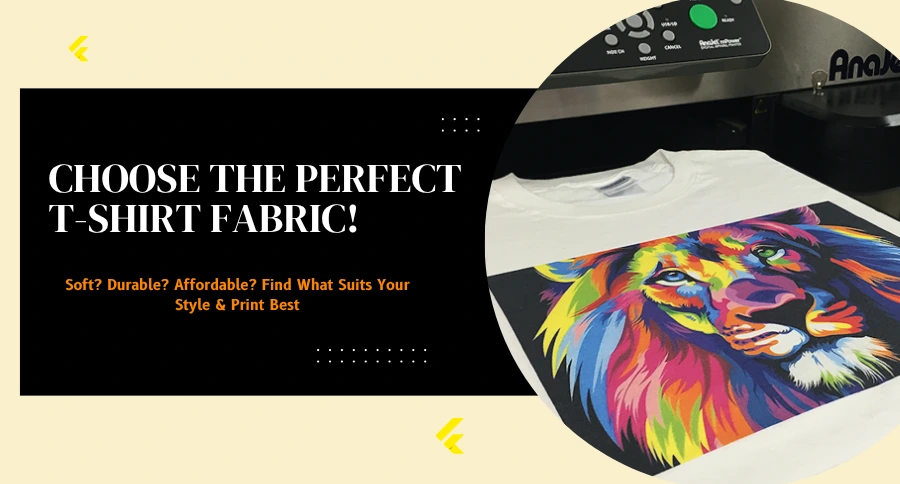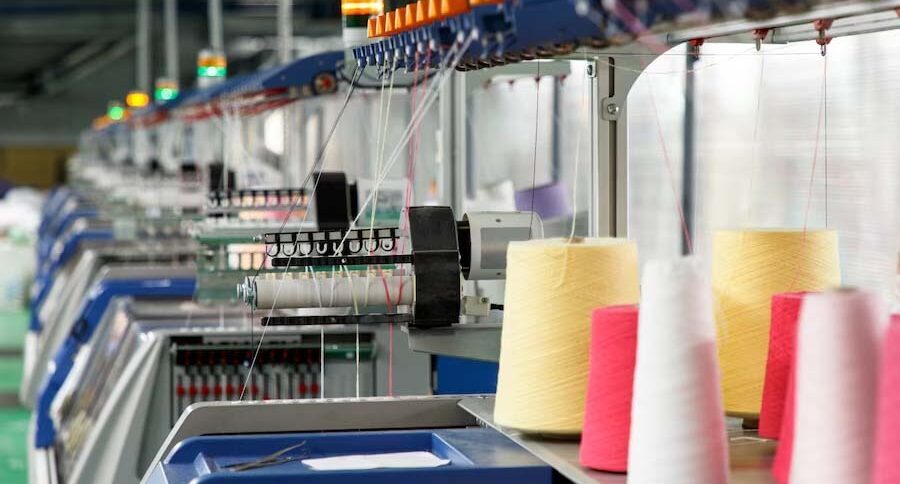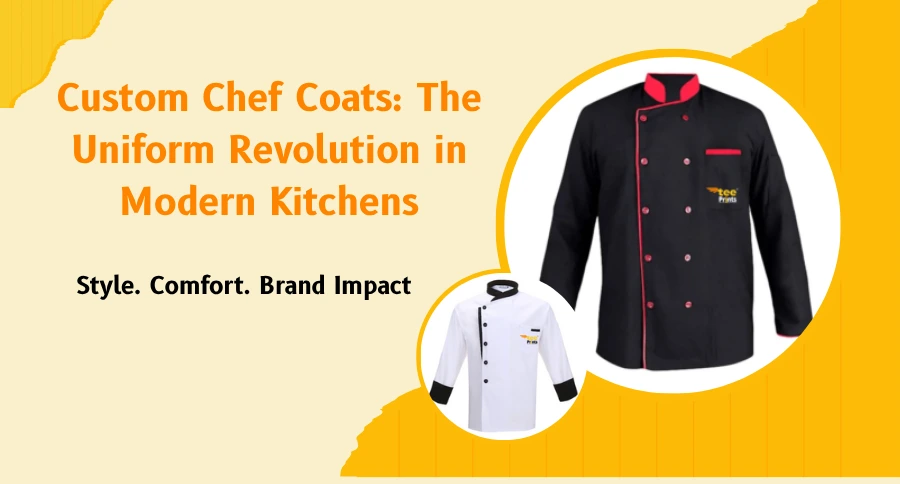Whether you’re creating T-shirts for a corporate event, college fest, or even for your own clothing line, the fabric you use can make or break the product. It’s not merely about appearances—comfort, durability, print quality, and cost are all things to consider when choosing the correct fabric. Here at this blog, we’ll guide you through the options of fabrics, their advantages and disadvantages, and how to select the most appropriate one for you.
🎽 Why Fabric Choice Matters
An examination of fabric types requires an initial understanding of the fundamental reasons why fabric selection holds significance:
- Comfort: People avoid shirts that produce rough sensations or cause skin irritation.
- The longevity of superior fabrics ensures extended wear periods essential for uniforms and branded goods.
- Certain fabrics demonstrate superior print retention capabilities compared to others.
- Purpose-Specific Needs: A fabric designed for sports tees may prove unsuitable for promotional giveaways.
1. 100% Cotton: The Classic Favorite
The majority of custom t-shirts use cotton as their primary fabric due to its numerous advantages. The material exhibits softness while ensuring breathability and remains readily accessible in markets.
Pros:
Extremely comfortable and gentle on the skin
Natural fiber (hypoallergenic)
Ideal For:
Daily wear
Promotional tees
Merchandise for schools, NGOs, and startups
Keep in Mind:
Post-wash cotton fibers contract slightly while exhibiting greater wrinkle propensity compared to blended fabrics.
2. Cotton-Polyester Blend: The Perfect Balance
Twin fabrics of sorts, so 60% cotton/40% polyester (or 50/50) are really a blend of good factors from both.
Pros:
- More durable, so they do not shrink or wrinkle
- Normally light and cheaper
- Prints go on well
Ideal For:
Uniforms and workwear
Large bulk orders
Sports events or college fests
Keep in Mind:
Blended shirts might not feel as “natural” as 100% cotton, but they’re incredibly practical.
3. Polyester: Performance Power
Polyester is a synthetic fiber known for its strength and moisture-wicking capabilities. It’s the top choice for athletic and activewear.
Pros:
Durable and stretch-resistant
Dries quickly and wicks away sweat
Lightweight and colorfast
Ideal For:
Sports teams
Outdoor staff uniforms
Gym, fitness, or performance brands
Keep in Mind:
It’s not as breathable as cotton and can retain odors if not properly cared for.
4. Organic Cotton: For the Eco-Conscious Brand
If sustainability is part of your mission, organic cotton is a premium choice. It’s grown without harmful chemicals and has minimal environmental impact.
Pros:
Eco-friendly and chemical-free
Gentle on skin and hypoallergenic
Great for premium or ethical brands
Ideal For:
Eco-conscious brands
Premium clothing lines
Gifts for special occasions
Keep in Mind:
It’s usually more expensive than regular cotton, but worth it for niche markets.
5. Tri-Blends: Softness Redefined
Tri-blend fabrics combine cotton, polyester, and rayon, often in a 50/25/25 ratio. This makes for a luxurious, feather-light fabric that feels broken in from the first wear.
Pros:
Ultra-soft and stylishly fitted
Slight stretch for extra comfort
Gives prints a “vintage” look
Ideal For:
Lifestyle brands
Concert or band merchandise
Fashion-forward or influencer merch
Keep in Mind:
Tri-blend tees are more premium and may be costlier than other options — ideal for limited editions or loyal customers.
Consider Your Audience
When deciding on fabric, one of the most important things to consider is knowing who will be slouching into that t-shirt.
- Youngsters and students: Soft cotton or cotton blends are cheap and comfortable.
- Corporate teams: A blended or moisture-wicking fabric requires little maintenance and lasts a long time.
- Sports teams: Polyester, to meet the activewear demands.
- Premium buyers: Organic cotton or tri-blend touch and feel a notch above.
Care and Maintenance Count
Any wearer could thank you if the whole set-up of the shirt is super easy to maintain. Cotton shrinks; blends and poly-fabrics don’t. So, before you decide on what fabric you’re going to select to produce your t-shirt, do consider how this t-shirt is going to be used and washed.
What Tee Prints Recommends
At Tee Prints, we help you select the right fabric based on your design, audience, and budget. Whether you’re printing a few personalized gifts or planning a 500-piece bulk order, our team helps match you with the fabric that gives your message the best impact — without compromising on comfort or cost.






